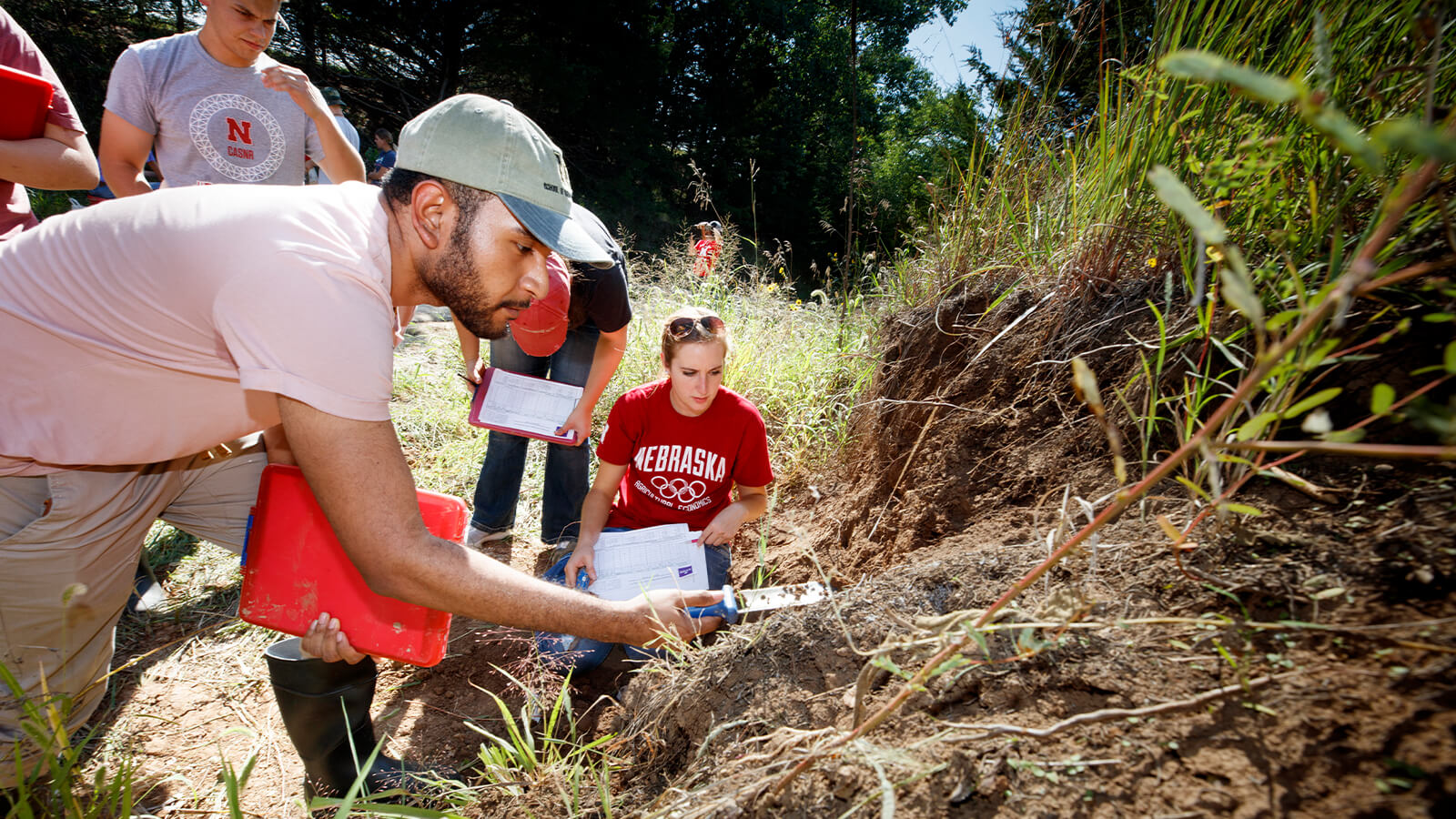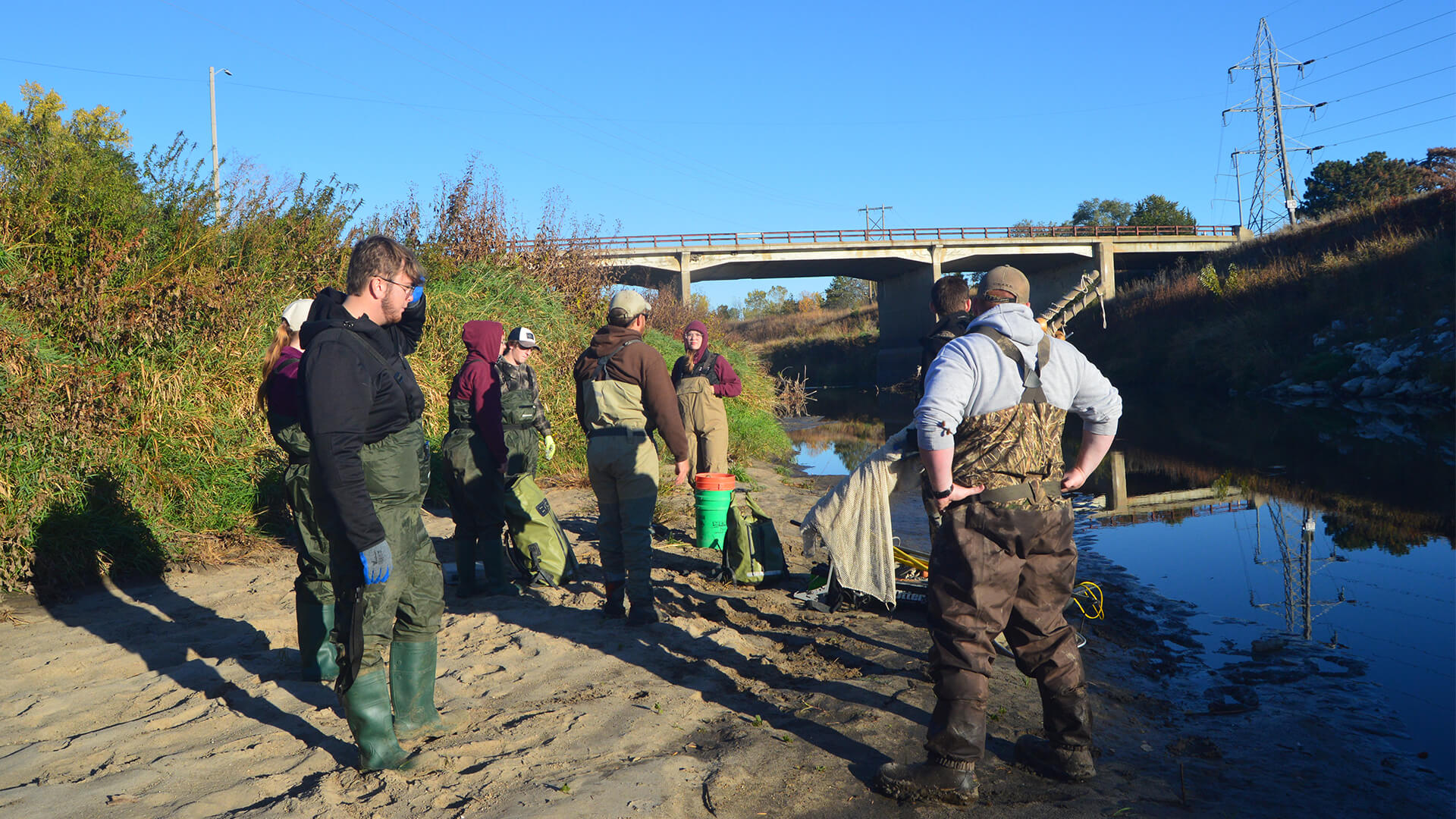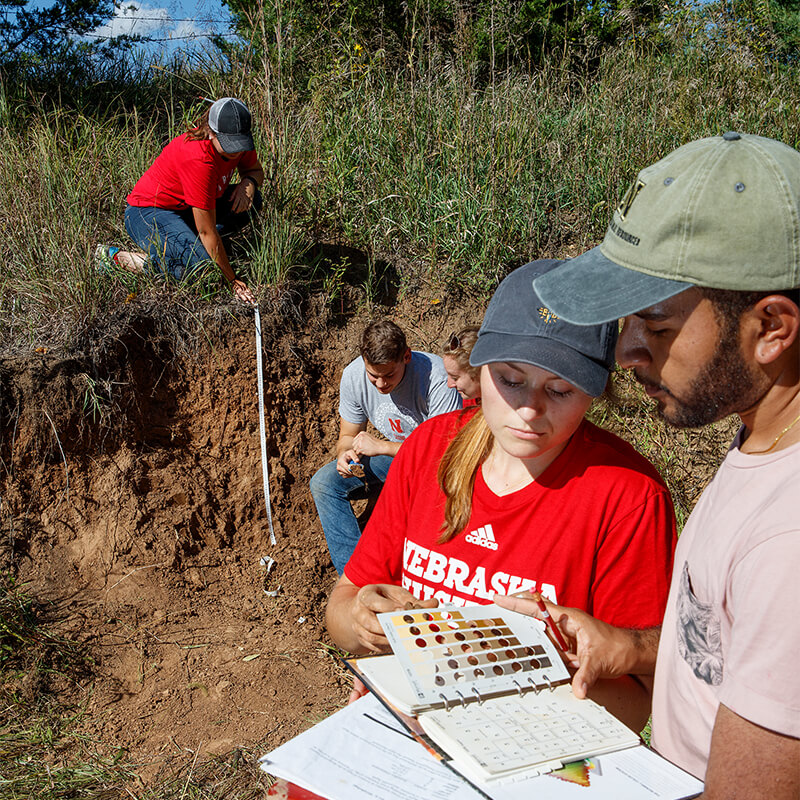Environmental Science

The Nebraska Difference
1-to-1 Personalized Advising
Hands-On Experiences Outside the Classroom
Undergraduate Research Opportunities

Program Features
Environmental Science Options
Each environmental science student has the opportunity to choose at least one program option to focus on. These environmental science options help you specialize your coursework based on your career goals.
Climate Science
Students selecting this option will focus on understanding the complexities of Earth’s climate system to understand climate-based problems and their interrelationships with natural resources and ecosystem management. This includes topics such as natural hazard management, climate change, climate variability, and changing frequency and severity of extreme climate events.
Soil Science
This option provides you with an understanding of soil as a natural resource and as a component of all terrestrial ecosystems. Learn how soils influence ecological processes taking place above and below ground.
Water Science
This option is designed for students considering careers in water quality, aquatic ecology or limnology. Prepare to implement pollution abatement procedures or management practices associated with lake and stream restoration.
Spatial Science
This option emphasizes the application of geographic information systems and spatial analysis, enabling students to address environmental issues through innovative technologies and methodologies.

Notable Courses
Soil Evaluation (NRES 279)
Apply fundamental knowledge to the description of soils in the field. Application of techniques employed in writing descriptions of soil morphology.
Climate and Society (NRES 452)
Explore how climate impacts human and natural systems while developing critical perspectives on building climate resilience in diverse, global socio-economic and ecological systems.
Limnology (NRES 459)
Explore the physical, chemical, and biological dynamics of lakes, rivers, and streams, and the fascinating organisms that call them home. Learn what drives their health and productivity, and how humans impact freshwater ecosystems.
Applications of Remote Sensing (NRES 420)
Learn how satellite and aerial imagery is used to map, monitor, and manage agricultural lands, natural resources, and environmental change. Gain practical skills in using remote sensing tools to understand landscapes and how they’re changing over time.
GIS for Agriculture and Natural Resources (NRES 415)
Provides hands-on experience using Geographic Information Systems (GIS) to map, analyze, and solve real-world challenges. Learn how to use spatial data to better understand and manage agricultural systems, natural resources, and environmental change.
Huskers Do Big Things
Internships
- Sustainability intern, Lincoln Public Schools
- Quality operation intern, Zoetis
- Student environmental science intern, RE/SPEC Inc.
- Environmental health intern, Children’s Mercy Kansas City
Careers
- Technical sales, Li-COR Biosciences, Lincoln, Nebraska
- Soil scientist, USDA-NRCS, Powell, Wyoming
- Ecologist, Forest Preserve District, Springfield, Illinois
- Soil conservationist, Natural Resource Conservation Service, Central City, Nebraska
- Integrated water management planner, Nebraska Department of Natural Resources, Lincoln, Nebraska
- Consultant, JEO Consulting, Lincoln, Nebraska
Graduate Schools
- M.S. and Ph.D. Soil Science, Pennsylvania State University
- M.S. Environmental Management, Duke University
- Ph.D. Environmental Science, Oregon State University
- M.S. and Ph.D. Environmental Science, University of California Riverside
- M.S. and Ph.D. Agricultural Meteorology, Iowa State University
- M.S. Climatology, University of Delaware
Outside the Classroom
Study abroad to discover and learn about the variety of ecosystems found in Namibia. Visit landmarks where students can see elephants, zebras and other large animals. See seals and whales on the coast.
Cedar Point Biological Station (CPBS) is a field research facility and experiential classroom in western Nebraska. Experiences draw on the variety of local habitats and diversity of flora and fauna.
Sustain UNL has opportunities to promote awareness and action around sustainability. Working in and around the campus, students encourage adoption of sustainable practices through activism, education and service.
Have Questions? We're Here to Help
If you have questions about the Environmental Science major or navigating the application process, contact us.

- Contact Name
- Bridget Gross
- Contact Title
- Recruitment Specialist
- Phone
-
-